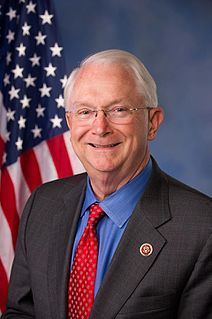A Quote by James Surowiecki
The financial crisis of 2008 was not caused by investment banks betting against the housing market in 2007. It was caused by the fact that too few investors - including all of the big investment banks - bet too heavily on the housing market in the years before 2007.
Related Quotes
Fannie Mae and Freddie Mac - two bloated and corrupt government-sponsored programs - contributed heavily to the crisis.In order to prevent another crisis, we need to do what we should have done years ago - reform Fannie Mae and Freddie Mac. We also need to repeal Dodd-Frank, the Democrats' failed solution. Under Dodd-Frank, 10 banks too big to fail have become five banks too big to fail. Thousands of community banks have gone out of business.
Too-easy credit and millions of bad loans made during the U.S. housing bubble paved the way for the financial calamity and Great Recession that followed. Today, by contrast, credit is too tight. Mortgage loans are particularly hard to get, creating a problem for the housing market and the broader economy.
On the Glass-Steagall thing, like I said, if you could demonstrate to me that it was a mistake, I'd be glad to look at the evidence. But I can't blame [the Republicans]. This wasn't something they forced me into. I really believed that given the level of oversight of banks and their ability to have more patient capital, if you made it possible for [banks] to go into the investment banking business as continental European investment banks could always do, that it might give us a more stable source of long-term investment.
What I think about derivatives is if every institution that owns or trades them is properly margined and marked to market, including end-users, including every institution, including sovereigns and multilateral institutions, then the system would be safe - if people were margined the way customers of investment banks are margined.
































